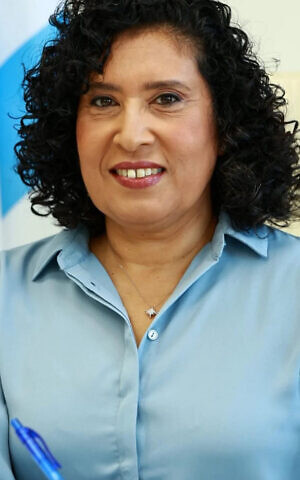More than half of the new immigrant children who came to Israel in the aftermath of Russia’s invasion of Ukraine have yet to be registered for the upcoming school year, which starts on Thursday, according to government figures.
Figures provided to The Times of Israel by the Education Ministry show that of the roughly 6,000 children between the ages of 3 and 17 who have immigrated to Israel in the past six months from Ukraine, Russia and Belarus, only 2,653 had registered with an Israeli school.
The situation was more extreme with Ukrainian refugees who are not eligible for citizenship but have chosen to remain in Israel regardless. According to the Education Ministry, of the 1,224 school-age children with this status, just 288 had enrolled in the Israeli school system.
That does not necessarily mean those children will not be receiving an education. Some children, particularly young ones, may be home schooled by their parents, many of whom have yet to find work. Some older ones may choose to continue studying in their Ukrainian schools, many of which have switched to remote learning in light of the ongoing warfare in the country.
Deganit Sankar-Langa, director-general of the Immigration and Absorption Ministry, which is tasked with overseeing the integration of all immigrants into Israeli society, told The Times of Israel that her office was closely tracking the situation and reaching out to the parents of the children who had yet to register to encourage them to do so.
“We have created a shared dashboard with the Education Ministry to track every child to see if they have or have not enrolled in the education system. And if they haven’t, why they haven’t,” Sankar-Langa said.
“We know the reason why every child has not yet been enrolled [in a school]. For instance, a mother who is still moving around and the father is still in Ukraine in the military there, so they haven’t decided yet where the child will study. Or a mother who decided that since she hasn’t yet started to work she wants to continue to be with her kids, who have been through a serious traumatic experience, so she doesn’t want to start them immediately in kindergarten. These are just a few examples,” she said.

Deganit Sankar-Langa, director-general of the Immigration and Absorption Ministry, in an undated photograph. (Government Press Office)
While Sankar-Langa said that the government understands these considerations, her ministry believes that entry into the Israeli school system represents one of the most successful avenues for integrating new immigrant children, as well as their parents, into Israeli society. Her office is therefore continuing to encourage enrollment into the education system.
“As with every year, we are focused on education because we believe that this is the way to ensure the best possible absorption,” Sankar-Langa said.
Since February, when Russia launched its invasion of Ukraine, upwards of 31,000 people immigrated to Israel from Ukraine (over 12,000 people) and Russia (nearly 19,000), in the largest wave of immigration to Israel, known in Hebrew as aliyah, in more than two decades.
Unlike most immigrants to Israel, those coming in the wake of Moscow’s invasion have done so suddenly and with limited preparation, some of them with barely more than the clothes on their backs. Many also came initially with tourist visas, starting their naturalization process only once they arrived to Israel, as opposed to doing so in advance, making it more difficult for Israeli authorities to track them.
“This year, this special year, we made a huge effort to find the immigrants,” Sankar-Langa said in a phone interview this month. “These people fled, coming to Israel with just a few plastic bags, and didn’t necessarily go through the proper channels. We had to find them and track them and make sure that they knew about the services available to them through local government.”
